
Mitsuru Toda, MS, PhD, discusses research that discovered 94 patients who had invasive aspergillosis with influenza.

Mitsuru Toda, MS, PhD, discusses research that discovered 94 patients who had invasive aspergillosis with influenza.

Melvin Weinstein MD, discusses the emerging technologies that will advance the field of blood culture testing.
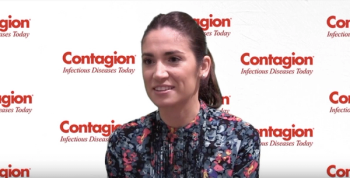
Julie Ann Justo, PharmD, discusses the myths associated with penicillin allergies and why it is important to determine a patient's true penicillin allergy-status.

Kenneth Sherman, MD, discusses hepatitis B infections in immunocompromised patients and what clinicians should expect to see in the future for hepatitis B treatment.

Norman Javitt, MD, PhD, discusses the concept of using ursodeoxycholic acid and its potential role in suppressing C diff spores to prevent inflammation.

Maureen Spencer, RN, M.Ed., discusses how rapid molecular diagnostics are changing the treatment timeline for sepsis and Clostridium difficile (C diff).
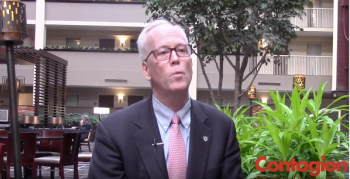
Edmund A. Hooker, MD, DrPH, discussed the gaps in disinfection in the hospital and how hospital beds can be properly sanitized to prevent the spread healthcare-associatedted infections.

Mike Ison, MD, MS, discusses the key takeaways from the CAPSTONE-2 phase 3 trial evaluating baloxavir marboxil for the treatment of patients with influenza.

Kenneth E. Sherman, MD discusses the zoonotic hepatitis E virus and about the first reported case of rat-to-human transmission.

Jason Gallagher, PharmD, discusses how omadacycline could potentially replace fluoroquinolone use in the treatment of complicated skin infections and community-acquired pneumonia.

Julie Ann Justo, PharmD, MS, BCPS-AQ ID, provides examples from her institution about using prediction scores and rapid diagnostic scores in concert.

Mindy Smith, BSPharm, RPh, provides tips for recommending the flu shot to patients who are more likely to get the flu.

Dale N Gerding, MD, provides insight about prevention options for C diff that are expected in the future.
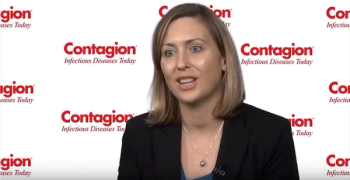
Colleen Kelley, MD, discusses the possibility of an HIV vaccine and current progress being made in HIV prevention.

Nimish Patel, PharmD, PhD, describes his study, which compared fidaxomicin with oral vancomycin in early targeted therapy of C diff.

Dale N. Gerding, MD, discusses bezlotoxumab and its use for preventing recurrent C diff infections.
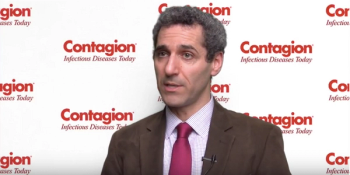
Douglas Krakower, MD, explains how predictive models can be used to identify patients that are at a higher risk for HIV and could benefit from learning about PrEP.

Eric Daar, MD, discusses the obstacles associated with new research and technology in the pursuit of finding a cure for HIV.

Yoav Golan, MD, discusses the paradigm shift occurring in treatment for ABSSSI and how to motivate clinicians to buy into new programs and protocols.

Panelists hypothesize on theoretical downsides of resistance development for gram-negative infections and reflect on the importance of implementing outpatient parenteral antibiotic therapy.

Bruce M. Jones, PharmD, BCPS, discusses dalbavancin as an option for treating ABSSSI and the importance of patient education when using this agent.
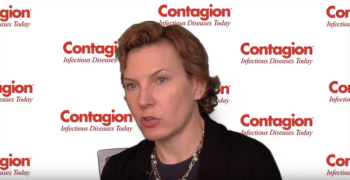
Barbara Wells Trautner, MD, PhD, explains how overtreating asymptomatic bacteriuria can lead to antibiotic resistance or incorrect diagnoses.

Mindy Smith, BSPharm, RPh, shares common misconceptions about the flu shot and how providers can advocate for the vaccination to their patients.

Ellie J. C. Goldstein, MD, discusses the interplay and interchange between long-term and short-term acute care hospitals and explains how transitions in care can result in the spread of antibiotic resistance.

Julie Ann Justo, PharmD, MS, BCPS-AQ ID, explains how rapid diagnostics interplay with prediction scores in antimicrobial stewardship programs.
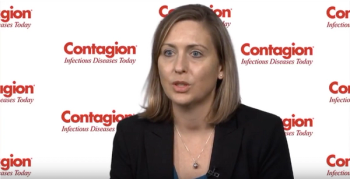
Colleen Kelley, MD, discusses the importance of keeping all populations on the HIV care continuum, especially those who are at a disadvantage.

Troy Trygstad, PharmD, MBA, PhD, discusses the trends of targeted research in the influenza vaccination space and how protocols could differ based off of variances.

Eric Daar, MD, explains how gene editing therapy can be used to move the HIV cure agenda forward.

Nimish Patel, PharmD, PhD, discusses the updates to CDI management guidelines and the role of the pharmacists in providing education to physicians.

Jason Gallagher, PharmD, discusses the clinical implications of eravacycline for the treatment of intra-abdominal infections.